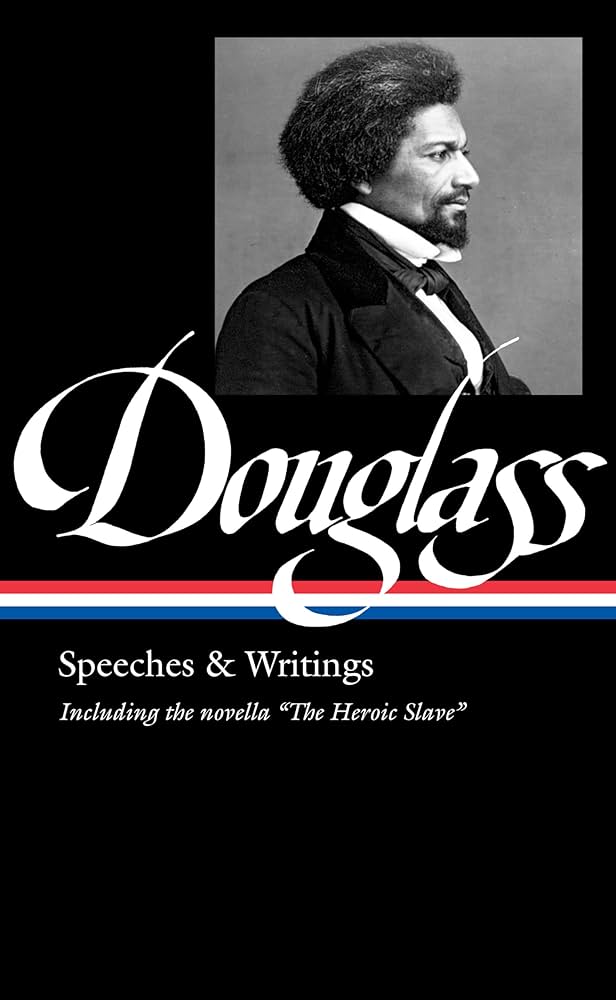Frederick Douglass: A Legacy Etched in Ink

Frederick Douglass, a name synonymous with the abolitionist movement and the fight for human rights, left behind a profound literary legacy that continues to resonate today. His powerful narratives, born from the crucible of slavery, not only documented the brutal realities of his experience but also served as potent weapons in the struggle for freedom and equality. This exploration delves into the life and works of Frederick Douglass, examining his books, their lasting influence, and their continued relevance in contemporary society. We will explore his literary contributions through the lens of genres, key themes, his unique writing style, and the impact his works have had on literature, society, and the ongoing conversation surrounding racial justice. You can find further information and resources on Lbibinders.org.

The Power of Narrative: Genres and Themes in Douglass’s Writings
Frederick Douglass’s literary output transcends simple autobiography. While his narratives are deeply personal accounts of his life under slavery and his subsequent journey to freedom, they simultaneously function as powerful social commentary and potent calls for action. His works span several genres, most notably autobiography, political writing, and journalism. His primary and most impactful works are undeniably autobiographical, offering an unflinching look at the horrors of slavery and the resilience of the human spirit. However, he also skillfully employed other literary tools to reach a broader audience and further his cause.
His early autobiographies, Narrative of the Life of Frederick Douglass, an American Slave (1845) and My Bondage and My Freedom (1855), stand as cornerstones of American literature. These narratives are not mere chronological accounts; they are meticulously crafted works of art that strategically expose the dehumanizing aspects of slavery, shattering the idealized and often romanticized portrayals prevalent in pro-slavery literature. Through vivid descriptions and poignant storytelling, Douglass compels readers to confront the stark realities of bondage – the physical brutality, the psychological torment, and the systematic dismantling of human dignity.

The narrative structure itself is significant. Douglass’s recounting of his journey, from enslaved child to self-educated orator and eventually a respected public figure, serves as a testament to the indomitable human spirit. He subtly shifts the narrative focus from a victim’s perspective to one of agency and resistance, highlighting his active role in achieving his own liberation. This is a critical aspect of his work – his insistence on the humanity of enslaved people and the inherent right to freedom.
Beyond his autobiographical works, Douglass engaged in prolific political writing and journalism. His essays, speeches, and editorials addressed a wide range of contemporary issues, including abolitionism, women’s rights, and political reform. These works often echoed the themes present in his autobiographies, but broadened their scope to encompass a wider social and political landscape. He employed a sophisticated rhetoric, using logic, emotion, and persuasive language to garner support for his causes and challenge prevailing societal norms.

The Enduring Legacy of Douglass’s Autobiographies
The impact of Douglass’s autobiographies cannot be overstated. They became vital tools in the abolitionist movement, providing firsthand accounts that powerfully challenged the pro-slavery arguments of the time. The vivid descriptions of the horrors of slavery, combined with Douglass’s eloquent and compelling prose, moved readers to action and fostered a deeper understanding of the inhumane nature of the institution. These works played a crucial role in shaping public opinion and contributed significantly to the eventual abolition of slavery in the United States. Their continued relevance today lies in their ability to illuminate the enduring legacy of slavery and its ongoing impact on American society. They serve as a stark reminder of the importance of fighting against injustice and inequality in all its forms.
The Masterful Pen: Douglass’s Writing Style and Inspirations
Douglass’s writing style is characterized by its power, eloquence, and intellectual sophistication. While born into slavery and deprived of formal education, he possessed an innate talent for language and a relentless thirst for knowledge. He meticulously honed his writing skills through self-education, immersing himself in literature and practicing his craft tirelessly. The result is a style that is both accessible and intellectually rigorous, capable of conveying complex ideas with clarity and emotional impact.
His prose is marked by vivid imagery and powerful descriptions that vividly portray the brutality and dehumanization inherent in the institution of slavery. He effectively uses metaphors and similes to convey the emotional and psychological toll of slavery, making the experiences relatable and deeply affecting for readers. His skillful use of rhetorical devices, including powerful appeals to pathos, logos, and ethos, further enhances the persuasiveness of his writing.
Douglass’s writing was also deeply influenced by the intellectual currents of his time. He was a voracious reader, absorbing the works of prominent abolitionists, religious thinkers, and political philosophers. These influences are discernible in his writing, particularly in his masterful use of rhetoric and his articulation of complex political and moral arguments. However, his writing also possesses a distinctly personal voice, reflecting his unique experiences and perspectives. This blend of intellectual depth and personal experience is what makes his work so compelling and enduring.
The Evolution of Douglass’s Literary Voice
As Douglass’s life progressed, so too did his writing style. His early autobiographies reflect a certain naiveté and a focus on personal survival, while his later works showcase a more sophisticated understanding of political and social issues. He evolved from a personal narrative into a powerful public voice, leveraging his writing to advocate for a range of social justice causes. This evolution reveals not only his personal growth but also his increasing mastery of language and his deeper understanding of the complexities of American society.
Beyond the Books: Douglass’s Cultural Impact and Legacy
The impact of Frederick Douglass extends far beyond his literary contributions. He was a towering figure in the abolitionist movement, a skilled orator, a prominent political activist, and a tireless advocate for human rights. His life and works have left an indelible mark on American history and culture. His influence can be seen in the countless works of literature, film, and other media that have drawn inspiration from his life and writings.
His legacy is perpetuated through numerous adaptations of his narratives, ranging from stage plays and films to contemporary works of fiction and non-fiction that engage with his themes and ideas. His speeches and writings continue to be studied and analyzed by scholars and students alike, ensuring that his powerful message remains relevant to contemporary audiences. His courageous stand against injustice has inspired countless activists and social reformers throughout history and continues to fuel movements for racial justice and equality today.
His literary influence is evident in the works of subsequent writers who have drawn upon his narrative strategies, his powerful rhetoric, and his focus on the experiences of marginalized communities. He not only chronicled the realities of slavery but also created a model for autobiographical writing that has profoundly impacted the genre.
Douglass’s Continuing Relevance in the 21st Century
In the 21st century, Douglass’s works remain profoundly relevant. His powerful narratives continue to expose the enduring legacy of slavery and racism in American society. His insights into the nature of power, oppression, and resistance are as timely today as they were during his lifetime. His life serves as an inspiring example of perseverance, intellectual courage, and unwavering commitment to social justice. His words continue to inspire activists, scholars, and readers to challenge injustice and strive for a more equitable and just world.
Accessing Douglass’s Works: Libraries and Digital Resources
For those seeking to engage with Frederick Douglass’s literary legacy, numerous resources are available. Many public libraries maintain collections of his works, offering opportunities for direct engagement with his writing. Digital libraries, such as those maintained by universities and cultural institutions, provide convenient access to digitized versions of his books, speeches, and articles. Moreover, Lbibinders.org offers invaluable resources dedicated to the study and appreciation of Frederick Douglass’s work.
Specialized archives and rare book collections house original manuscripts and letters, offering deeper insights into Douglass’s life and creative process. These repositories provide invaluable opportunities for researchers and scholars to engage with primary sources and further expand our understanding of his contributions to literature and the fight for human rights. These resources, both physical and digital, are crucial to preserving and promoting Douglass’s legacy for future generations.
Learning from Douglass: Educational Value and Life Lessons
The study of Frederick Douglass’s works offers immense educational value. His narratives provide firsthand accounts of a pivotal period in American history, offering unique perspectives on the institution of slavery, the struggles for abolition, and the ongoing fight for racial equality. His writings exemplify the power of literacy, self-education, and the importance of using one’s voice to challenge injustice.
Beyond their historical significance, Douglass’s works provide powerful life lessons. His remarkable journey from slavery to freedom underscores the resilience of the human spirit and the importance of perseverance in the face of adversity. His unwavering commitment to social justice serves as an example of how individuals can make a difference in the world. His writings are a testament to the transformative power of education and the importance of using one’s voice to speak out against injustice. Through his words and deeds, Douglass offers enduring inspiration to all those who strive for a more just and equitable society. By exploring his work through resources like Lbibinders.org, you can further your understanding and appreciation of this remarkable figure.